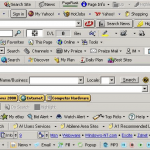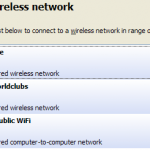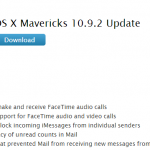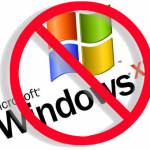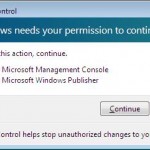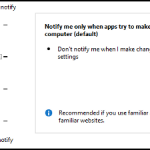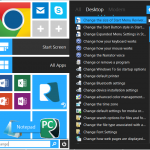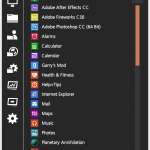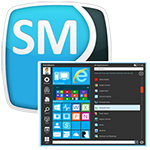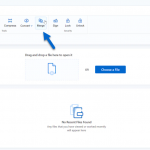Du skal på ferie, men det betyder ikke, at du ikke vil obsessivt tjekke din e-mail og surfe på nettet. Hvilket betyder, at din computer er et sted, der er begravet i din bagage. Pokker, det vil sandsynligvis være den første ting, du pakker ud. Men har du tænkt på at beskytte dit privatliv, mens du er ude og blødgør solen? Måske ikke. Dit privatliv er altid under angreb , men endnu mere når du rejser. Der er to ting, du vil gøre for at beskytte dit privatliv, mens du […]
| Ved Rachel |
|
|
| Ved Steve Horton |
|
|
Lad os se det i øjnene: dine forældre ikke passe deres pc så godt som du gør. Mens hjem på sommerferie, nu er det perfekte tidspunkt til at ordne det.
| Ved Steve Horton |
|
|
Clandestine Fox er navnet på den udnytte og hackere tager avantage af folk kører IE. Her er hvordan man kan undgå dette hack.
| Ved Mark Beare |
|
|
Heartbleed har gjort store overskrifter i denne uge. Lær, hvad det betyder for dig, og hvordan du beskytter dig selv.
| Ved Steve Horton |
|
|
Her er syv tips, når adgang Wi-Fi i en offentlig miljø. Du vil være sikrere bevæbnet med denne viden.
| Ved Steve Horton |
|
|
Det er vigtigt for alle på en Mac er gjort i de sidste adskillige år for at opdatere til OS X 10.9.2 Mavericks – vi vil fortælle dig hvorfor.
| Ved Mark Beare |
|
|
Microsoft har udvidet sikkerhed support til Windows XP frem til 14 juli 2015. Find ud af, hvad det betyder for dig.
| Ved Steve Horton |
|
|
User Account Control i Windows Vista & 7 giver dig mulighed for at justere sikkerhedsniveauer for hver bruger, der giver eller udelukke adgang til mange Windows-funktioner.
| Ved Steve Horton |
|
|
Det er vigtigt at vide, hvordan at hæve eller sænke Brugerindstillinger konto for hver bruger du styre, så Windows giver dig besked, hvis din pc er ved at blive ændret.
| Ved Steve Horton |
|
|
Brugere af Internet Explorer-udgaverne 6 til 9 er i risiko for huller i sikkerheden. Få mere at vide om dette problem, og hvordan du reparerer det.
| Ved Mark Beare |
|
|
Her er nogle værdifulde indsigt i vigtigheden af at holde den software, der kører på din pc opdateret!
| Ved Mark Beare |
|
|
Hvad er phishing? Nej, det er ikke en stavefejl, og det er ikke et ord til at beskrive jamming ud på din guitar i timevis. Phishing er en form for bedrag anvendes af kriminelle til at svigagtigt få information, oftest i form af passwords eller login oplysninger. Phishing kan også føre til ondsindede programmer at inficere din computer. Phishing-angreb typisk kommer i form af meddelelser eller links, der præsenteres at være noget, de ikke er. Disse kan være alt fra et ondsindet link sendt til dig via e-mail til en dummy hjemmeside, der efterligner et legitimt websted at narre dig til at indtaste dine login oplysninger.

